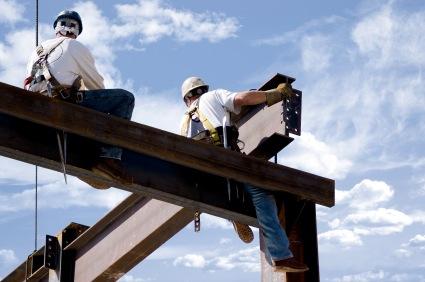- Free Consultation: (630) 527-4177 Tap Here to Call Us
When Can You Sue for a Construction Accident Beyond Workers’ Compensation in Illinois?

Construction sites are inherently hazardous, and while workers’ compensation provides a safety net for injured workers, there are circumstances where pursuing a lawsuit outside of this system is both permissible and advantageous. In Illinois, understanding when and how to step beyond workers’ compensation after a construction accident is crucial for securing full and fair compensation.
Understanding Workers’ Compensation in Illinois
The Illinois Workers’ Compensation Act (820 ILCS 305) mandates that employers provide benefits to employees injured on the job, covering medical expenses, a portion of lost wages, and disability benefits. This system operates on a no-fault basis, meaning employees are entitled to benefits regardless of who caused the injury. In exchange, employees generally forfeit the right to sue their employers for workplace injuries—a principle known as the “exclusive remedy” rule.
Exceptions to the Exclusive Remedy Rule
Despite the general prohibition against suing employers, Illinois law recognizes specific exceptions where an injured worker may pursue a lawsuit for injuries sustained on the job:
- Intentional Harm by the Employer: If an employer intentionally causes harm to an employee, the exclusive remedy provision does not apply. This includes acts of battery, assault, or intentional infliction of emotional distress.
- Employer’s Failure to Carry Workers’ Compensation Insurance: Employers who knowingly fail to obtain workers’ compensation insurance lose the protection of the exclusive remedy rule, allowing employees to sue for damages in civil court.
- Dual Capacity Doctrine: If an employer occupies a second role that imposes a separate duty of care to the employee, and a breach of that duty causes injury, the employee may sue the employer in that capacity.
- Injuries Not Arising from Employment: If an injury is not related to the employee’s work duties or occurs outside the scope of employment, the exclusive remedy provision may not apply.
Pursuing Third-Party Construction Accident Claims
In many construction accidents, parties other than the employer may be responsible for the worker’s injuries. These third parties can include:
- General Contractors and Subcontractors: If a contractor other than the employer maintains control over the worksite and fails to ensure safety, they may be liable.
- Property Owners: Owners who fail to maintain safe premises can be held accountable under premises liability laws.
- Equipment Manufacturers: Defective tools or machinery that cause injury can lead to product liability claims against manufacturers or distributors.
- Other Drivers: Injuries resulting from car accidents involving third-party drivers during work-related travel may warrant a personal injury lawsuit.
Third-party lawsuits allow injured workers to seek compensation beyond what workers’ compensation provides, including damages for pain and suffering, emotional distress, and full wage loss.
Legal Precedents Supporting Third-Party Claims
Illinois courts have upheld the right of injured workers to pursue third-party claims. In Munoz v. Bulley & Andrews, LLC, 2022 IL 127067, the Illinois Supreme Court ruled that a general contractor could not claim immunity under the Workers’ Compensation Act when sued by an employee of its subsidiary, emphasizing that only the direct employer is entitled to such immunity.
Comparative Fault and Liability in Illinois

Illinois follows a modified comparative fault system. If an injured party is found to be more than 50% at fault for their own injury, they are barred from recovering damages. If they are 50% or less at fault, their compensation is reduced proportionally to their degree of fault.
Additionally, under Illinois’ joint and several liability rules, any defendant found to be at least 25% responsible for the injury can be held liable for the entire amount of damages, ensuring that the injured party can recover full compensation even if one party cannot pay.
Coordinating Workers’ Compensation and Third-Party Claims
Injured workers can simultaneously pursue workers’ compensation benefits and third-party lawsuits. However, if a third-party claim results in a settlement or judgment, the employer or its insurer may have a right to reimbursement for the workers’ compensation benefits paid, through a process known as subrogation.
Importance of Legal Representation After a Construction Accident
Navigating the complexities of workers’ compensation and third-party claims requires specialized legal knowledge. An experienced Illinois construction accident attorney can help identify all potential sources of liability, gather necessary evidence, and advocate for maximum compensation. Given the strict time limits for filing personal injury lawsuits in Illinois—prompt legal consultation is essential.
Contact the Top-Rated Illinois Construction Accident Lawyers at John J. Malm & Associates
While workers’ compensation offers essential benefits after a construction site injury, it often falls short of covering the full extent of a worker’s losses—especially when pain and suffering, long-term disability, or third-party negligence are involved. Fortunately, Illinois law allows injured workers to seek additional compensation through third-party lawsuits in many cases.
If you or a loved one has been injured on a construction site, don’t assume that workers’ compensation is your only option. Speak with the experienced Illinois construction accident attorneys at John J. Malm & Associates. We can evaluate your case, identify all liable parties, and help you pursue the full and fair compensation you deserve. Contact our firm today for a free consultation and let us fight to protect your rights and your future.















